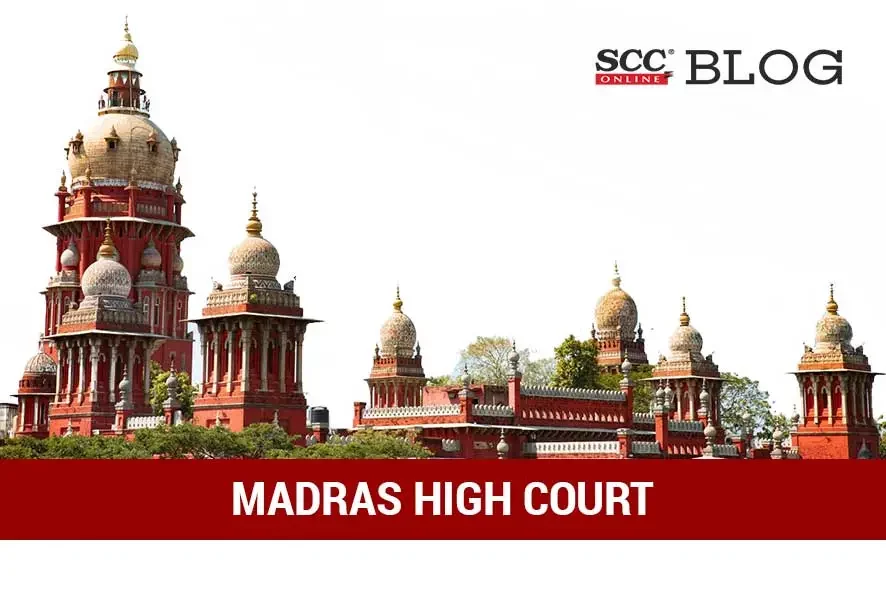Madras High Court: In a petition filed by Indian Politician R.S Bharathi under Section 482 of the Criminal Procedure Code, 1973 to direct the Director of Vigilance and Anti-Corruption (‘DVAC’) to register and investigate the complaint against former Chief Minister EK Palaniswami regarding the Highway tender scam, N. Anand Venkatesh while expressing anguish on the complete loss of independent functioning by the Executive, held that the preliminary inquiry report, which was submitted by the Additional Superintendent of Police, Special Investigation Cell, Vigilance and Anti-Corruption, (Enquiry Officer) does not suffer from any apparent illegality or unreasonableness in reaching the conclusion regarding every allegation that was made against EK Palaniswami. Further, it said that there is no reason for conducting another fresh preliminary inquiry as was ordered by the Government, as such a direction has been given only due to the change in the political party that has come to power. The only appropriate remedy in law for RS Bharathi will be under Section 156(3) CrPC.
Background:
The Single Judge directed the Director to hand over investigation to the Central Bureau of Investigation (‘CBI’) and further directed the CBI to conduct the preliminary inquiry within a period of three months. This order was challenged before the Supreme Court by DVAC and EK Palaniswami, wherein the Court without expressing any opinion on the merits set aside the impugned order passed by the Single Judge and directed DVAC to hand over all the case files and material to the Joint Director, CBI to conduct a preliminary enquiry against him. Further, it remitted the matter to the High Court to consider the matter afresh, including the preliminary report filed by DVAC against EK Palaniswami and pass appropriate orders in accordance with law.
Analysis:
After scrutinising the preliminary inquiry report, the Court said that the Enquiry Officer dealt with each allegation put forth by RS Bharathi separately and considered the relevant materials pertaining to those allegations. Ultimately, he had concluded that there was no sufficient and tangible evidence to substantiate the allegations, that there was no favouritism or abuse of public office or official position while awarding the contract and that there was no undue pecuniary advantage to anyone.
The Court noted that the Secretary to Government, Public Department, through a letter informed DVAC that the Government decided to accord permission to conduct the preliminary inquiry afresh based on the petition given by RS Bharathi.
As per the Court, the important issue to consider is what impelled the ordering of a preliminary inquiry afresh, as the Government without assigning any reasons, straight away ordered for a fresh preliminary inquiry. DVAC is an independent body belonging to the Executive organ of the State. Hence, if DVAC is not satisfied with the earlier preliminary inquiry report submitted, immediate action should be taken by not accepting the preliminary inquiry report and instead ordering a preliminary inquiry afresh. DVAC did not come to such a conclusion and in fact, was satisfied with the preliminary inquiry report filed by the Enquiry Officer. That was the reason as to why the DVAC independently filed an appeal before the Supreme Court.
The Court said that without any change in the circumstances, except for the change in the government during the year 2021, the Government cannot now direct for a preliminary inquiry afresh by disregarding the earlier report, which was, in fact, accepted by the Director and the Former Government. In the eye of law, there is only one State Government, and it is immaterial as to which political party takes over the power. Therefore, for all purposes, a decision taken by the Government should stand and it cannot be reversed without any valid reasons, especially for a change in guard.
After referring to multiple judgments, the Court concluded that a decision taken should not be so easily nullified by the change of government and by some other political party assuming power. Unless the act done by the former Authority is either contrary to statutory provisions, unreasonable or against the public interest, the State should not change its stand merely because the other political party has come into power.
The Court said that it has not been proved that the earlier preliminary inquiry report is not in conformity with the law, or it is unreasonable or that some new materials have cropped up to order for a fresh inquiry. Hence, the Court held that the preliminary inquiry has been directed to be held afresh only for the reason that the other political party has come into power. The political agenda of an individual or a political party should not be subversive to the rule of law.
The Court remarked that the political parties have carefully manipulated the system to such an extent that they have complete control over the Executive. Every time there is a change in guard, the entire Executive set up also changes to ensure that organ toes the dictates of the government in power. Therefore, the separation of power that is in the hands of the Executive is almost non-existent.
Thus, the Court said that the change in the power dynamics is the only reason as to why the Director wants to disregard the earlier inquiry report and commence a fresh inquiry.
[R.S. Bharathi v. Director of Vigilance and Anti-Corruption, 2023 SCC OnLine Mad 4717, Order dated 18-07-2023]
Advocates who appeared in this case :
For Petitioner: Advocate N.R. Elango;
For Respondent: State Public Prosecutor Hasan Mohamed Jinnah, Advocate C. Ariyama Sundaram.








